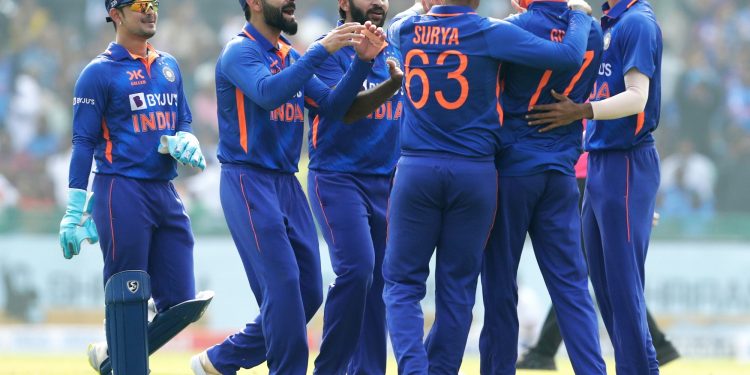New Delhi: Viacom 18 Thursday created a near monopoly in Indian cricket broadcasting sphere by bagging both TV and digital rights of the national team’s home series for the next five years with a cumulative bid of approximately Rs 6000 crore, beating Star India and Sony in a three-way battle.
The BCCI had invited separate e-bids for both linear (TV) and digital for best price discovery.
“Viacom 18 paid Rs 3101 crore (approximately) for digital and Rs 2862 crore for linear (TV). As has been the trend, digital has fetched more.
“With IPL digital rights being bought by Viacom for Rs 26,000 crore plus, they now have almost all the high profile cricket properties save IPL linear (TV) and ICC events,” a broadcasting industry source, tracking developments closely, told PTI on conditions of anonymity.
The rights will come into effect with India’s three-match home series against Australia beginning September 22 and end March 31, 2028.
“Congratulations @viacom18 for winning the @BCCI Media Rights for both linear and digital for the next 5 years. India Cricket will continue to grow in both spaces as after @IPL and @wplt20, we extend the partnership @BCCI Media Rights as well,” BCCI secretary Jay Shah said on ‘X’, formerly twitter.
India will be playing 88 international games across three formats including 25 Tests, 27 ODIs and 36 T20Is with per match value of the deal standing around Rs 67.76 crore. This is nearly Rs 7.76 crore more than last cycle’s Rs 60 crore per match value.
However BCCI is getting Rs 175 crore less than Rs 6138 crore it received during last cycle which had more games, specifically 102.
If one looks at the prevailing market sentiments, it is not a bad price to fetch as the per match valuation has increased. One needs to factor in that only marquee Test matches and series versus England and Australia will fetch a decent advertisement revenue. For matches against other nations, it is only the T20 which is the cash cow.
India will play Australia in 21 games and will be pitted against England in 18 matches across three formats during the next five years.
PTI






































